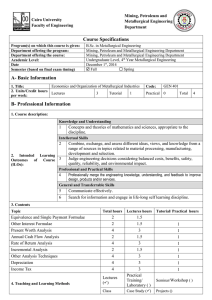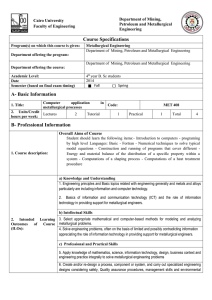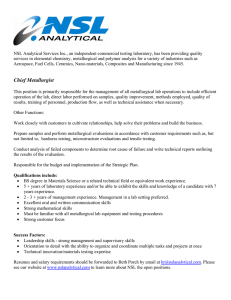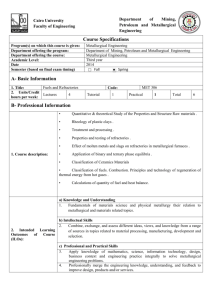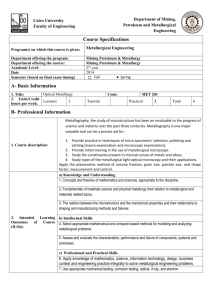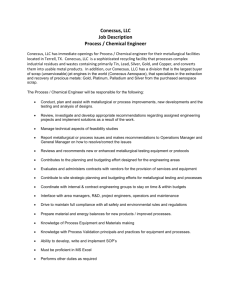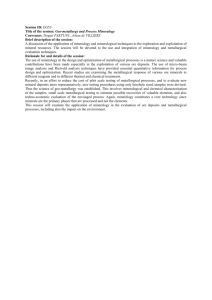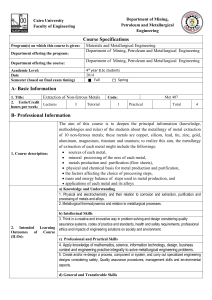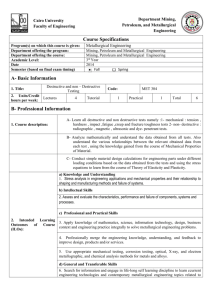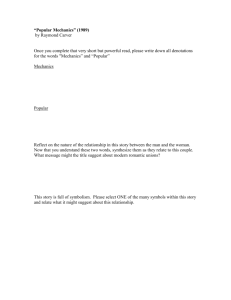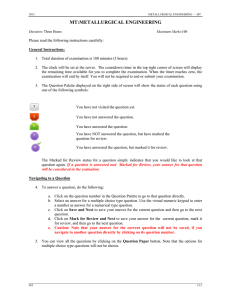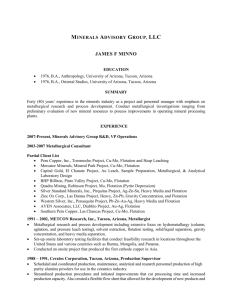3MET 303 Theory of E&P
advertisement
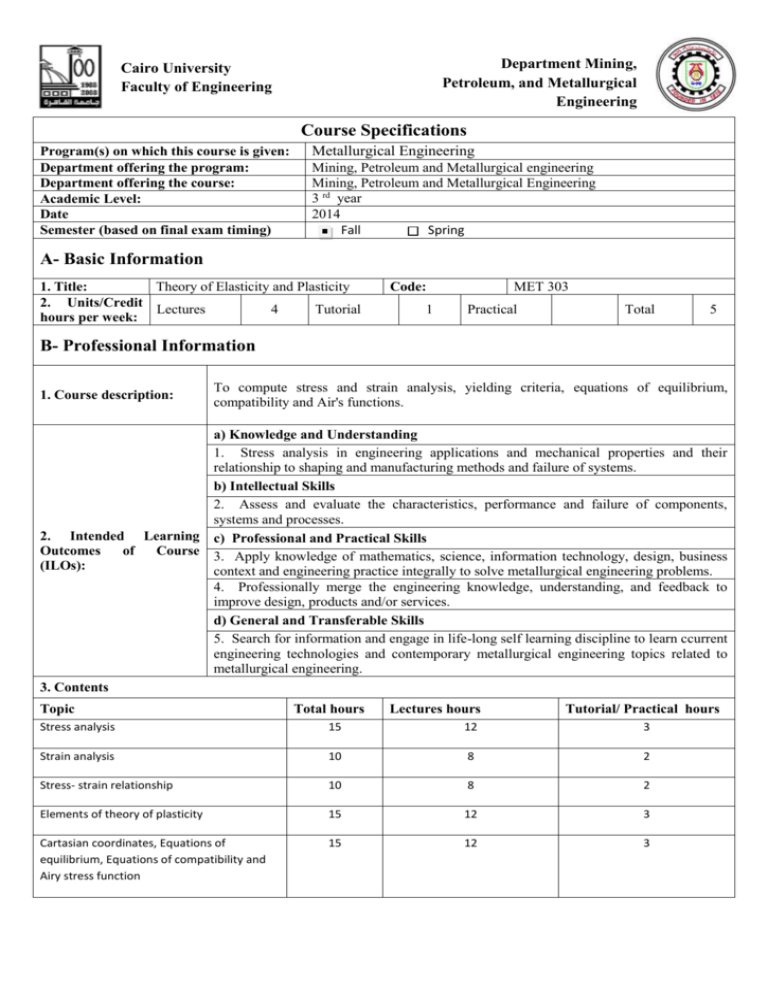
Department Mining, Petroleum, and Metallurgical Engineering Cairo University Faculty of Engineering Course Specifications Program(s) on which this course is given: Department offering the program: Department offering the course: Academic Level: Date Semester (based on final exam timing) Metallurgical Engineering Mining, Petroleum and Metallurgical engineering Mining, Petroleum and Metallurgical Engineering 3 rd year 2014 Fall Spring A- Basic Information Theory of Elasticity and Plasticity 1. Title: 2. Units/Credit Lectures 4 Tutorial hours per week: MET 303 Code: 1 Practical Total 5 B- Professional Information 1. Course description: To compute stress and strain analysis, yielding criteria, equations of equilibrium, compatibility and Air's functions. a) Knowledge and Understanding 1. Stress analysis in engineering applications and mechanical properties and their relationship to shaping and manufacturing methods and failure of systems. b) Intellectual Skills 2. Assess and evaluate the characteristics, performance and failure of components, systems and processes. 2. Intended Learning c) Professional and Practical Skills Outcomes of Course 3. Apply knowledge of mathematics, science, information technology, design, business (ILOs): context and engineering practice integrally to solve metallurgical engineering problems. 4. Professionally merge the engineering knowledge, understanding, and feedback to improve design, products and/or services. d) General and Transferable Skills 5. Search for information and engage in life-long self learning discipline to learn ccurrent engineering technologies and contemporary metallurgical engineering topics related to metallurgical engineering. 3. Contents Topic Total hours Lectures hours Tutorial/ Practical hours Stress analysis 15 12 3 Strain analysis 10 8 2 Stress- strain relationship 10 8 2 Elements of theory of plasticity 15 12 3 Cartasian coordinates, Equations of equilibrium, Equations of compatibility and Airy stress function 15 12 3 Applications for metals and polymers 4. Teaching and Learning Methods 5 4 1 Lectures () Practical Training/ Laboratory ( ) Seminar/Workshop ( ) Class Activity () Case Study () Projects ( ) E-learning ( ) Assignments /Homework ( ) Other: Information collection 5. Student Assessment Methods .Assessment Schedule Week -Assessment 1; Class test 2,4,6,10,12 and 14 regularly 6 assignments -Assessment 2; Project Assignment 5th -Assessment 3; Presentations 12th -Assessment 3; Midterm Exam 8th -Assessment 4; Final Exam End of the term Weighting of Assessments -Mid-Term Examination -Final-term Examination -Project -Class Test -Presentation -Total 15 % 65 % 5% 10 5% 100 % 6. List of References 6.1- Course Notes 6.2- Essential Books (Text Books) 1- Mechanical Metallurgy; G.E. Dieter, Mc. 1,Ch 2-3 ) 2- Mechanics of Materials, F.P. Beer and E.R. Johnston,jr. Grow- Hill Book Company, 1988. 3- Introduction to mechanics of Materials, W.F.Riley, and L.W. Zachary. 4Solution of Problems in Strength of Mechanics of Solids, S.A. Urry Turner. 5Engineering Solid Mechanics Fundamentals and Application, A.R. Ragab, Bayoumi. 6.3- Recommended Books --------------------------6.4- Periodicals, Web Sites, … etc -----------------------------------7. Facilities Required for Teaching and Learning Board over head projector Course Coordinator: Prof. Dr. El-sayed Mahmoud El-Banna Head of Department: Prof. Dr. El-sayed Mahmoud El-Banna ( Part and P.J. and S.E.
